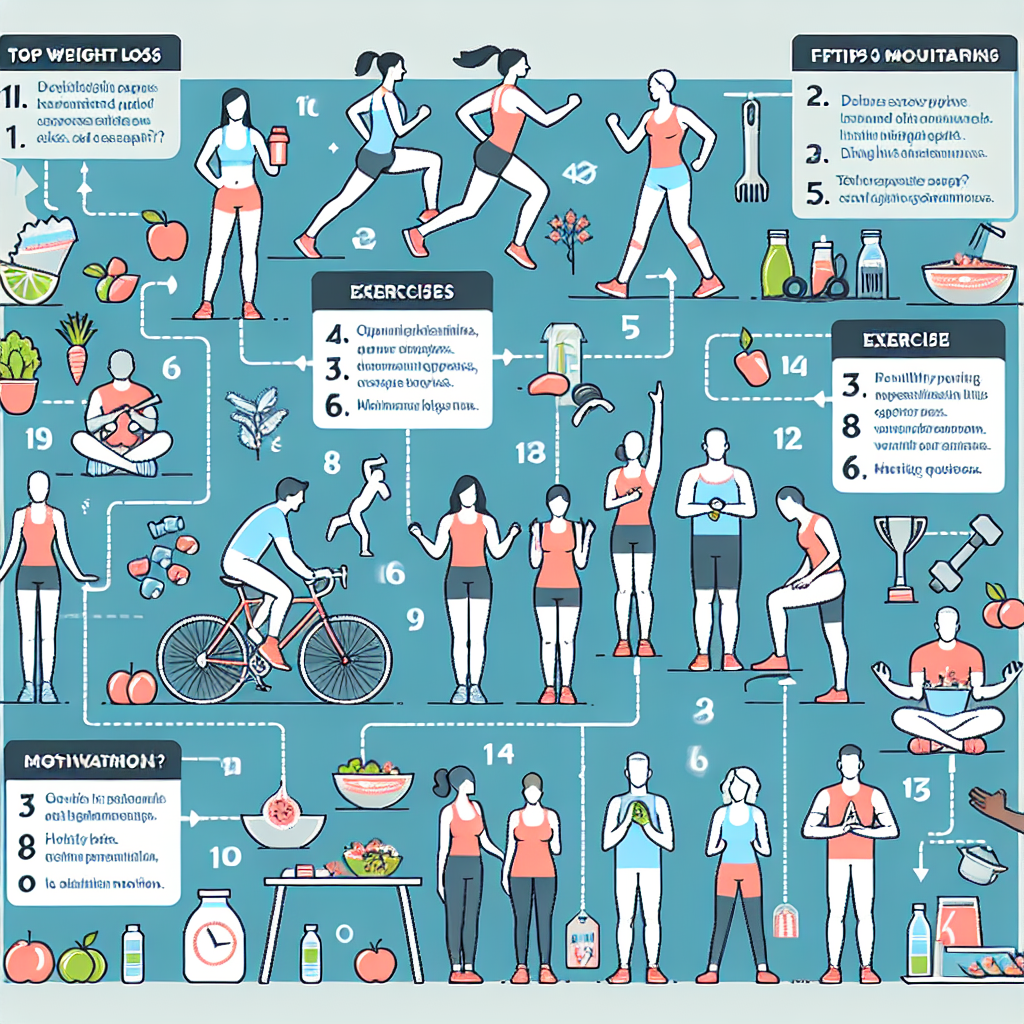1) What is a healthy rate of weight loss?
Answer: About 1–2 pounds (0.5–1 kg) per week is a safe, sustainable pace for most people. This typically requires a daily calorie deficit of roughly 500–750 calories. Faster loss can increase muscle loss and rebound risk.
2) Do I have to count calories?
Answer: Not necessarily. Calorie balance drives weight change, but you can create a deficit without counting by using portion guides (e.g., a palm of protein, a fist of veggies), prioritizing protein and fiber, limiting ultra-processed foods and sugary drinks, and planning balanced meals. Tracking can help some people; others do fine with structured habits.
3) How many calories should I eat to lose weight?
Answer: Estimate your maintenance calories with an online calculator or by tracking your current intake and weight for 1–2 weeks. Reduce by 300–500 calories per day and monitor progress for 2–3 weeks. Adjust up or down based on your rate of loss and how you feel. Larger bodies or more active people can often sustain a slightly bigger deficit.
4) What should I eat to lose weight in a healthy way?
Answer: Emphasize nutrient-dense, higher-satiety foods:
– Protein: about 1.2–1.6 g/kg body weight daily (more if very active) from fish, poultry, lean meats, eggs, yogurt, tofu, legumes.
– Fiber: 25–35 g/day from vegetables, fruits, legumes, whole grains.
– Healthy fats: olive oil, nuts, seeds, fatty fish; watch portions.
– Carbs: focus on minimally processed sources (oats, potatoes, beans, whole grains, fruit).
– Limit alcohol and sugary drinks; they add calories with low fullness.

5) Do I need to exercise to lose weight?
Answer: You can lose weight through diet alone, but exercise improves health, preserves muscle, and helps keep weight off. Aim for 150–300 minutes/week of moderate cardio (or 75–150 minutes vigorous) plus 2–3 days/week of resistance training. Also increase daily movement (steps, standing, chores).
6) How can I manage hunger and cravings?
Answer:
– Include protein and fiber at each meal; add volume with vegetables and broth-based soups.
– Don’t skimp on healthy fats entirely; they help with satiety.
– Eat regularly if long gaps trigger overeating.
– Prioritize sleep (7–9 hours) and manage stress; both affect appetite hormones.
– Keep tempting foods less accessible; plan balanced snacks.
– Allow flexible treats in controlled portions to avoid all-or-nothing swings.
7) Why did my weight loss stall?
Answer: Common reasons include reduced energy needs as you lose weight, untracked extras, less daily movement, and water fluctuations. What to do:

– Recalculate needs and ensure accuracy (weigh/measuring for a week can reveal drift).
– Add or progress resistance training and increase steps.
– Consider a small calorie adjustment (100–200 calories) or a diet break at maintenance for 1–2 weeks if you’re very fatigued.
– Give it 2–3 weeks; true plateaus are longer than a few days.
8) Will losing weight slow my metabolism?
Answer: Some slowdown is normal because a smaller body burns fewer calories and your body adapts slightly (adaptive thermogenesis). You can minimize it by losing weight gradually, eating enough protein, doing resistance training to preserve muscle, staying active, and avoiding very low-calorie crash diets.
9) Are low-carb, keto, or intermittent fasting better than other diets?
Answer: No single diet is best for everyone. When calories and protein are matched, most approaches produce similar weight loss. Choose a pattern you can stick with that controls calories, emphasizes protein and fiber, and fits your lifestyle and culture. Examples: Mediterranean-style, high-protein, low-carb, time-restricted eating, or a balanced plate approach.
10) How do I keep the weight off long-term?
Answer: Maintain the habits that got you there: regular resistance training and daily movement, a protein- and fiber-forward diet, mostly minimally processed foods, planned indulgences, consistent sleep, and stress management. Weigh or measure periodically (e.g., weekly) to catch small regains early, and adjust intake or activity promptly. Build a supportive environment and routines you can live with.
Note: If you have a medical condition, take weight-affecting medications, are pregnant/breastfeeding, or have a history of eating disorders, consult a healthcare professional or registered dietitian for personalized guidance.

